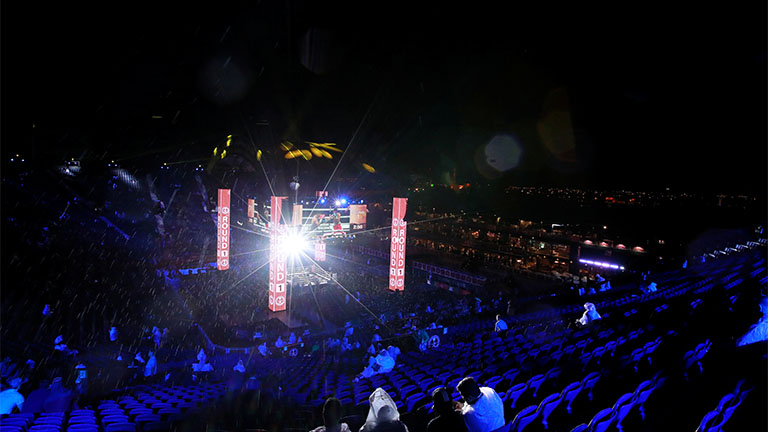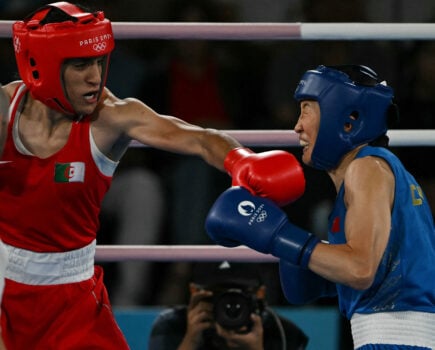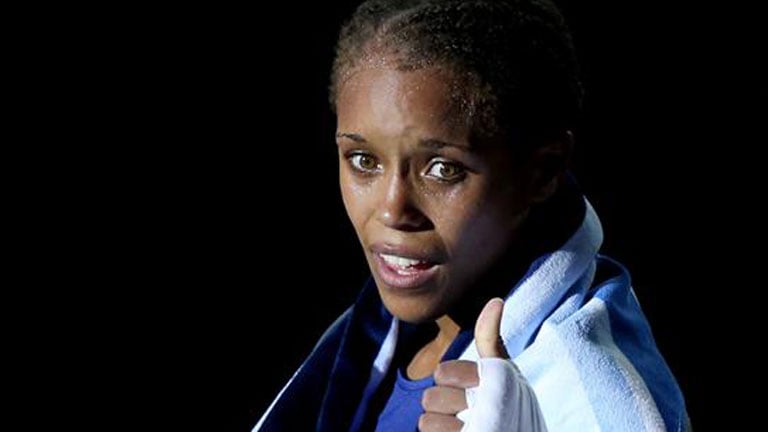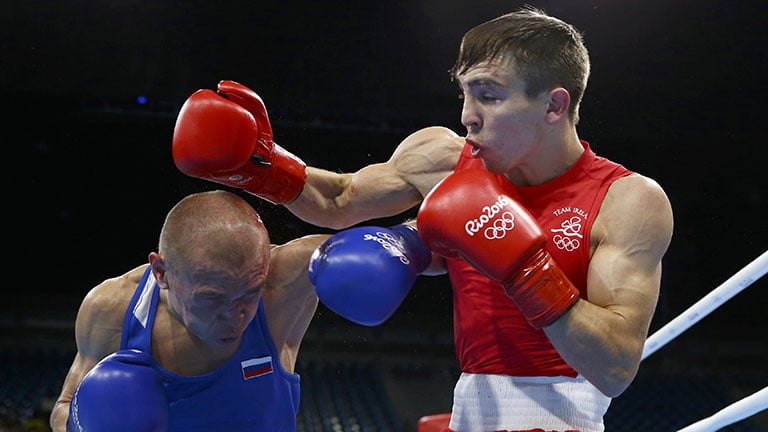THE national flag in Diriyah is the same size as a football pitch, the stadium took 56 days to build, the new skyscraper will be a mile high and Andy Ruiz Jnr’s sombrero weighed seven pounds. Welcome to Saudi Arabia, a land of bold claims.
The sombrero is back in California, the venue is now making its way to Tokyo for next year’s Olympics and the ring with the blood (mostly Ruiz’s blood), sweat (exclusively Anthony Joshua’s sweat) and gore from the title fight now lives under date trees in a tranquil garden at a House of Saud palace. The ring had spent 10 years at York Hall and will now spend eternity baking in the Saudi heat.
The heat vanished on fight day, replaced by savage, rare rain and wind; the weather came close to causing the undercard to be scrapped. “I was getting warmed up when we were told the fight might not happen,” said Hopey Price, the wide-eyed boy with trainer Dave Coldwell. It was close, real close, but thankfully the kid’s dream came true and he walked out and won on a Joshua undercard. That, for a young pro, is fantasy land.

It was a long week of glorious duties in Saudi; meals on floors with people desperately trying to put their feet somewhere other than in the lamb dish, great access to fighters (not Dillian Whyte, that little situation remains unresolved having been refused permission to talk with him) and then on fight day a genuine feeling of nerves and trepidation. And, yes, I had seen Ruiz’s weight, but I was also a grim witness to Ruiz’s speed in the Madison Square Garden ring. Don’t be fooled by bulge, I warned my Saudi hosts on Friday after the weigh-in. It was not the right way to repay them.
On Thursday night, near midnight, a Bedouin driving an off-road truck saved my neck. I had watched his beams appear, vanish and appear for about 10 minutes as he drove through mystical wadis, through travelling herds of a thousand wild camels and the odd oasis to finally reach us at our recording pitch on the very top lip at the Edge of the World. “He doesn’t need lights,” our guide, Hassan, had assured us. “He knows the land.” Hassan had let the battery in our giant four-by-four go flat and that is why we needed rescuing.
The plan that day, when the boxers and the circus took a break, was to drive from Riyadh to the fabulous mountain location, go off road for about an hour, find the best view, build a camp, build a fire, put down some rugs and watch, with Five Live’s Mick Costello, the first Andy Ruiz Jnr and Anthony Joshua fight. It would be the pod from The Edge of the World.
In the darkness, with a valley of distant lights 1,000 metres below us – the drop was about 10 feet from our fire – we watched that fight again, the ultimate after-timers’ showpiece. The shooting stars and satellites were the only things moving in the vast sky of endless stars, which seemed to come down and meet the mountains on either side of our tiny caravan. It was probably the most impressive location ever for a re-run of a heavyweight shock. Costello pushed play, we sat back in awe of the night sky and the disaster unfolding on the screen.
There was Joshua’s vacant look from June at the Garden, staring out at something unknown and unfamiliar. Ten minutes earlier, in his changing room, he had asked for a bucket of ice and had then plunged his head under the cubes, a desperate last attempt to lift his spirits. “My strength was gone, I had a medical condition,” he revealed the night after the Saudi fight.
From our fireside rugs we watched. We saw Joshua’s legs stiffen after he was caught, we wondered in round five if Ruiz had let the chance slip and we still made no sense of the ending. For nearly an hour we watched and stopped and played that fight. It had been in our heads since we left the Garden, a series of images, and out at the Edge of the World we put those pieces together again. It is not an easy watch. Joshua’s legs, I should say, stiffened and stayed that way. I had missed that on the night in New York, but watching in that magical setting, I was shocked by how bad his movement was with the back leg seemingly locked solid from the third until the end. I was even more shocked by the isolation out there in the Saudi desert as we entered hour three of our wait for our Bedouin saviour.
We got out fine, the week continued. I cuddled wild camels, I sat witness to the display. Job done. And finally over foul (a traditional bean breakfast dish served with lemon, olive oil and fresh chillies) and fresh camel milk, with Richie Woodhall on Monday morning, there was some good news. Panorama Jack, the BBC podcast producer, arrived ecstatic with the scoop that Mohammed bin Salman, known as MBS and Saudi’s reform master and leader, had been listening to the Costello and Bunce podcast. Incredible news, but how did he know? It turns out that Jack’s two-minute rant in the final pod had included a line about putting an end to segregated restaurants. That morning MBS had declared an end to the archaic ritual, it was in the news. It was a final triumph for the team on Saudi soil.






